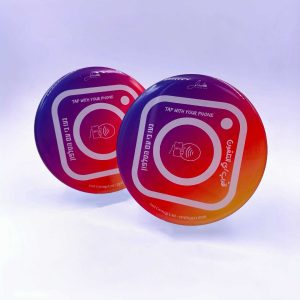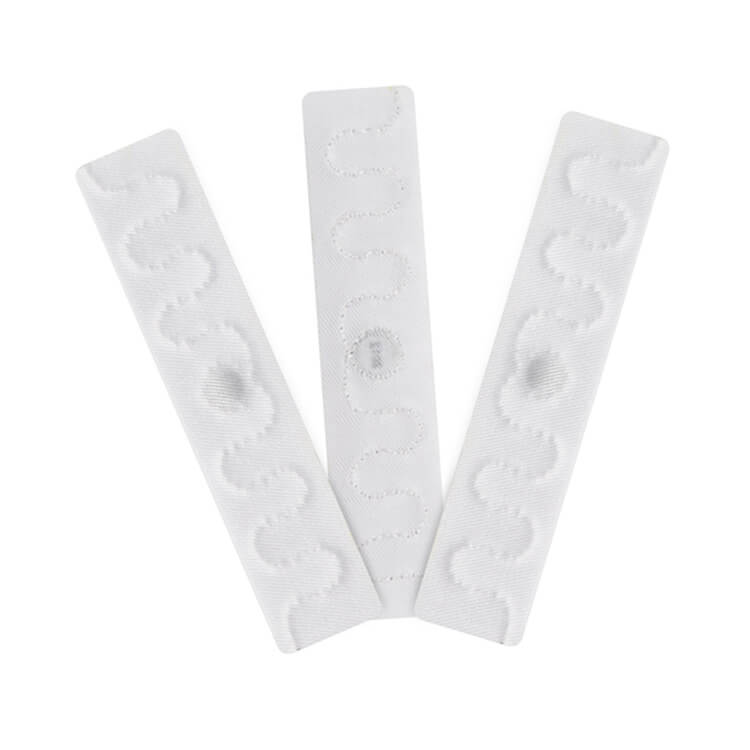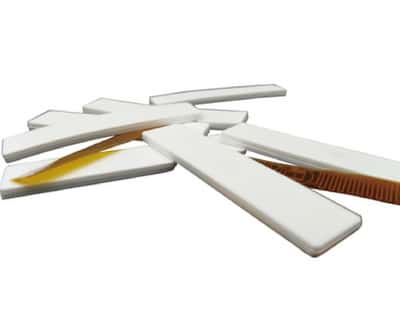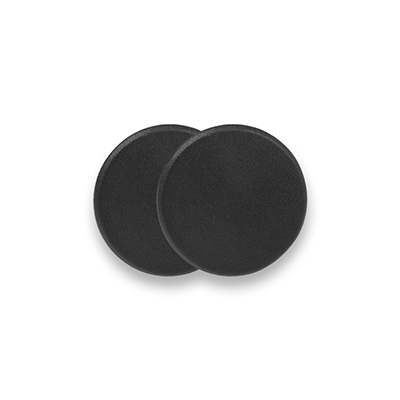In today’s dynamic business landscape, RFID (Radio-Frequency Identification) tags have emerged as transformative tools that transcend industry boundaries. From retail to pharmaceuticals, manufacturing to utilities, and beyond, RFID technology offers a versatile solution for organizations to enhance their operations by effectively tracking and managing goods, assets, equipment, and inventory.
The Power of RFID Tags: Revolutionizing Tracking and Management
At the heart of this innovation are RFID tags, small chips equipped with unique identification capabilities. These tags utilize electromagnetic fields to identify and track objects seamlessly. Unlike traditional barcodes, RFID tags don’t require direct contact with a reader, enabling the scanning of entire pallets or shipments of goods. This advanced feature makes RFID technology especially suited for applications like smart label tracking.
Diverse Applications: From Cargo to Access Control
The applications of RFID technology span across various industries and use cases. Industries such as retail benefit from RFID-enabled inventory management and supply chain tracking. Access control and asset tracking are enhanced through the use of RFID tags, while even animal identification is made possible. RFID technology extends to creating contactless payment cards and electronic toll collection systems, showcasing its adaptability and versatility.
Differentiating Passive and Active RFID
RFID technology offers both passive and active options, each with distinct advantages. Passive RFID tags operate without a battery and are powered by radio waves emitted by RFID readers. These tags respond by transmitting their unique ID when activated. Active RFID tags, on the other hand, possess their own power source and can provide real-time monitoring. The choice between the two depends on specific use cases, such as real-time visibility needs and handling requirements.
RFID vs. Barcodes: A Leap in Efficiency
Compared to traditional barcode technology, RFID offers numerous advantages. RFID tags can be scanned from a distance, eliminating the need for line-of-sight interaction and saving time and resources. Their ability to communicate via radio signals further refines tracking precision. RFID tags are also more versatile in terms of data storage and updateability, enhancing their value for evolving needs. While RFID offers heightened accuracy, it might not completely replace barcodes due to cost considerations and the multi-data-source capability of barcodes.
The Frequency Spectrum: RFID’s Technical Range
RFID technology operates within specific frequency ranges regulated by international standards. In Europe, ETSI standards dictate the range from 865 MHz to 868 MHz, while in North America, FCC standards govern the range from 902 MHz to 928 MHz. The UHF (ultra-high-frequency) range, spanning 860 MHz to 956 MHz, is widely adopted for its balance between coverage and global usability. Compatibility with multiple frequency bands ensures effective RFID deployment across diverse regions.
Standardization: Paving the Way for Efficiency
The RFID industry adheres to established technical and compliance standards, with EPCglobal specification being a prominent example. RFID tags feature memory banks storing varied data about tagged objects, such as Electronic Product Codes (EPCs), Toll IDs, User IDs, and Reserved IDs. These standards streamline manufacturing, enable large-scale production, and reduce costs while enhancing efficiency and productivity.
Harnessing RFID’s Potential: Advancing Supply Chains
RFID stickers serve as integral components within a comprehensive system aimed at enhancing inventory, equipment, and personnel tracking. This technology offers solutions tailored to various industries, enabling companies to achieve shipping efficiency, precise inventory control, equipment management, and more. By integrating RFID technology, organizations unlock a powerful tool that empowers smarter decision-making and fosters a more streamlined and efficient supply chain.
At RFID Tag Maker, we are dedicated to shaping the future of efficient tracking and smart solutions through the production of high-quality RFID stickers. As a specialized factory focused on RFID technology, we excel in creating innovative solutions that empower industries across the spectrum.
With a commitment to excellence, RFID Tag Maker combines cutting-edge technology, expertise, and a customer-centric approach to deliver RFID stickers that redefine tracking possibilities. Our diverse range of products, including RFID Sensor Tags, Laboratory Phial Labels, UHF Gen 2 LED Label Tags, and Anti-Metal RFID Stickers, showcase our dedication to addressing various industry needs.
Backed by a team of professionals well-versed in RFID technology, we continuously push the boundaries of innovation to offer tailored solutions for cold chain tracking, laboratory sample management, visual communication, and challenging surface environments. Our products are engineered to enhance efficiency, accuracy, and convenience across different applications.
At RFID Tag Maker, we take pride in being a reliable partner for businesses seeking advanced RFID solutions. With a focus on quality, performance, and customer satisfaction, we strive to provide the tools that empower industries to reach new levels of operational excellence.
The RFID Sensor Tag is designed for cold chain tracking, offering real-time temperature monitoring capabilities. With a combination of NFC (Near Field Communication) and UHF (Ultra-High Frequency) technologies, this tag provides a comprehensive solution for temperature-sensitive goods.
Key Features and Applications:
- Real-time temperature detection
- Ideal for cold chain logistics
- Combines NFC and UHF technologies
- Ensures temperature-sensitive goods’ quality and integrity
2. RFID Laboratory Phial Label
This printable laboratory RFID tag is engineered to excel in laboratory environments, including the ability to withstand storage in liquid nitrogen for extended periods. The tag’s face stock and adhesive meet medical qualifications, making it a reliable solution for tracking laboratory samples.
Key Features and Applications:
- Suitable for liquid nitrogen storage
- Meets medical qualifications
- Designed for laboratory sample tracking
- Printable for customization
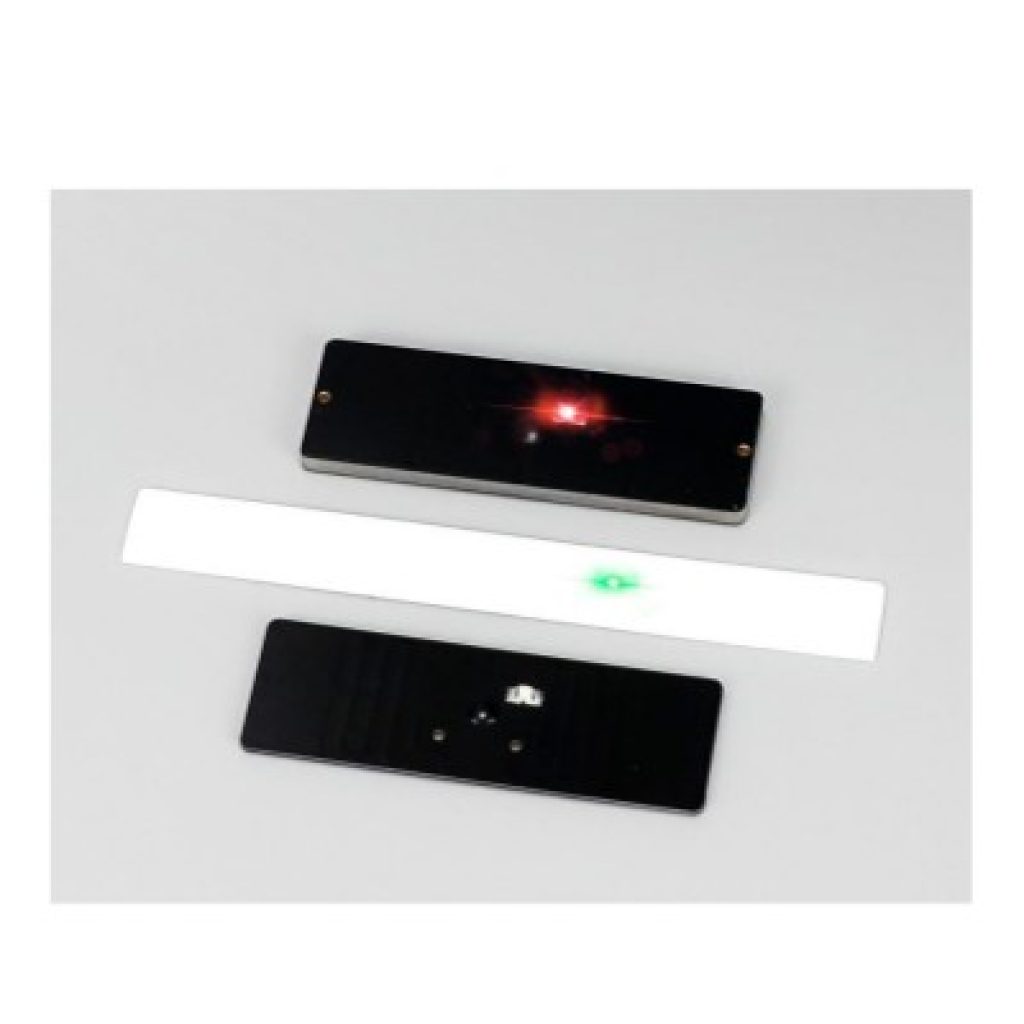
The UHF Gen 2 RFID LED label tag is an innovative product that combines a high-performance UHF Gen 2 RFID chip with software-programmable LED lighting technology. This tag allows for visual indication and dynamic communication, adding a new layer of information to the tracking process.
Key Features and Applications:
- Integrates UHF Gen 2 RFID chip with LED lighting
- Enables visual indication and dynamic communication
- Enhances tracking with dynamic information display
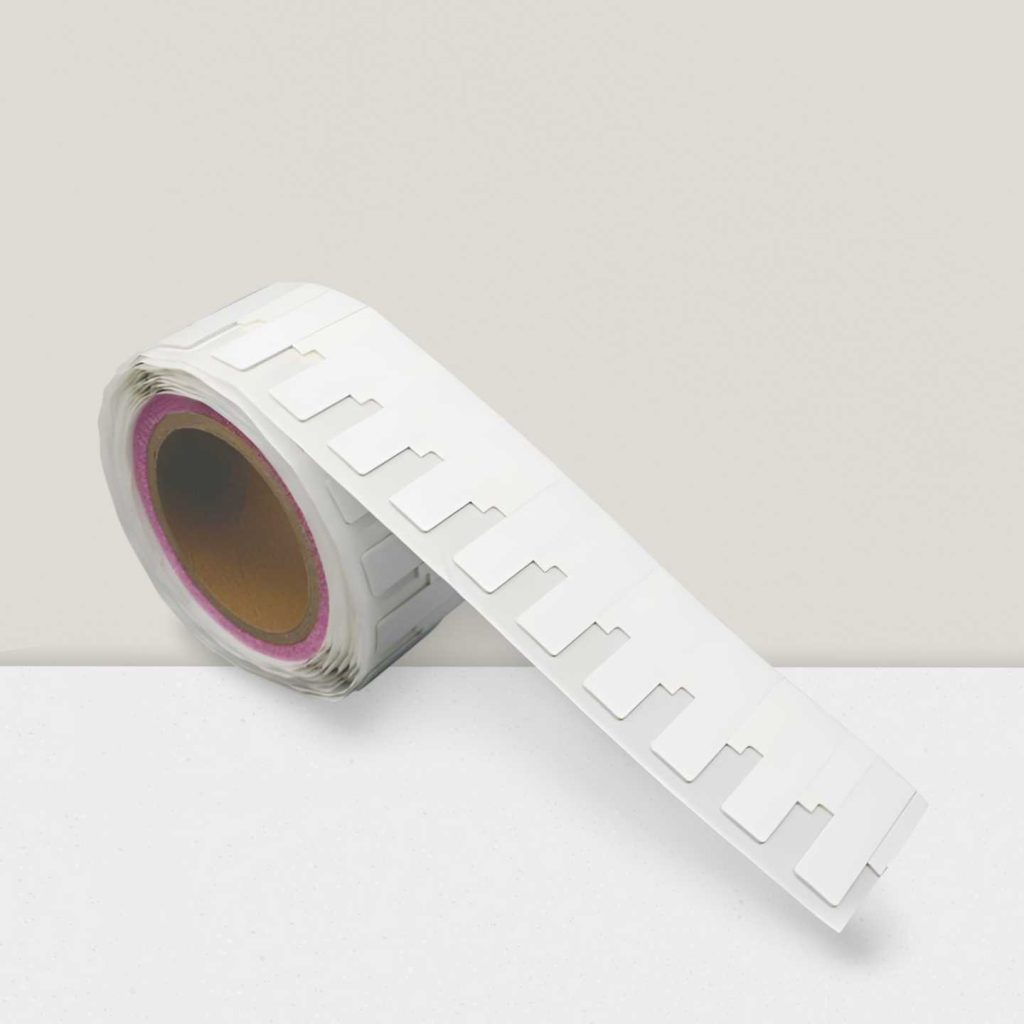
Designed to overcome challenges posed by metal surfaces, the Anti-Metal RFID Sticker is characterized by its small and ultrathin profile. It’s optimized for thermal barcode printers, compatible with various materials, and holds certifications such as RoHS and CE approval.
Key Features and Applications:
- Smallest ultrathin design
- Optimized for thermal barcode printers
- Suitable for curved surfaces
- Resilient against metals and liquids
- Suitable for hassle-free deployment involving metals and liquids
Technical Specifications:
- Read range: Fixed Reader up to 24.6 ft. (7.5 m), Handheld Reader up to 9.84 ft. (3 m)
- Frequency: 860 – 960 MHz
- IP Rating: IP68
- Reprogrammable Memory: 128 bits (EPC), 48 bits (Unique TID)
- IC Type (chip): Impinj Ucode 8
- Material: White synthetic label for consistency and reliability
These RFID stickers offer a diverse range of features and applications, catering to various industries and use cases. From real-time temperature monitoring to laboratory sample tracking, dynamic communication, and overcoming metal surface challenges, these RFID stickers provide innovative solutions for efficient tracking and management.

